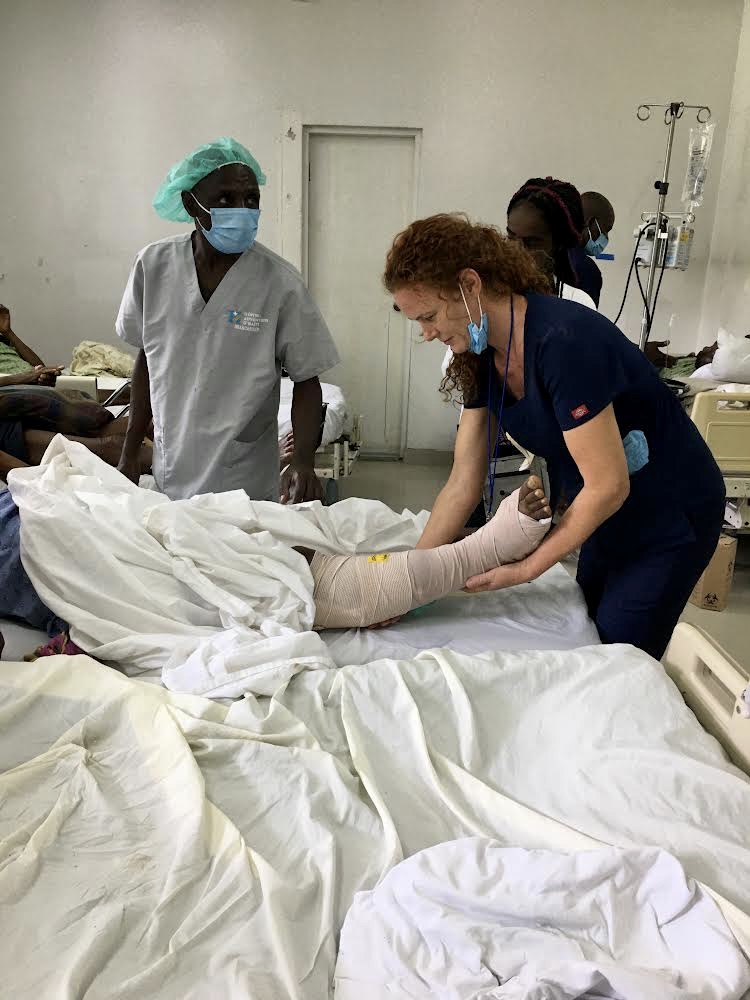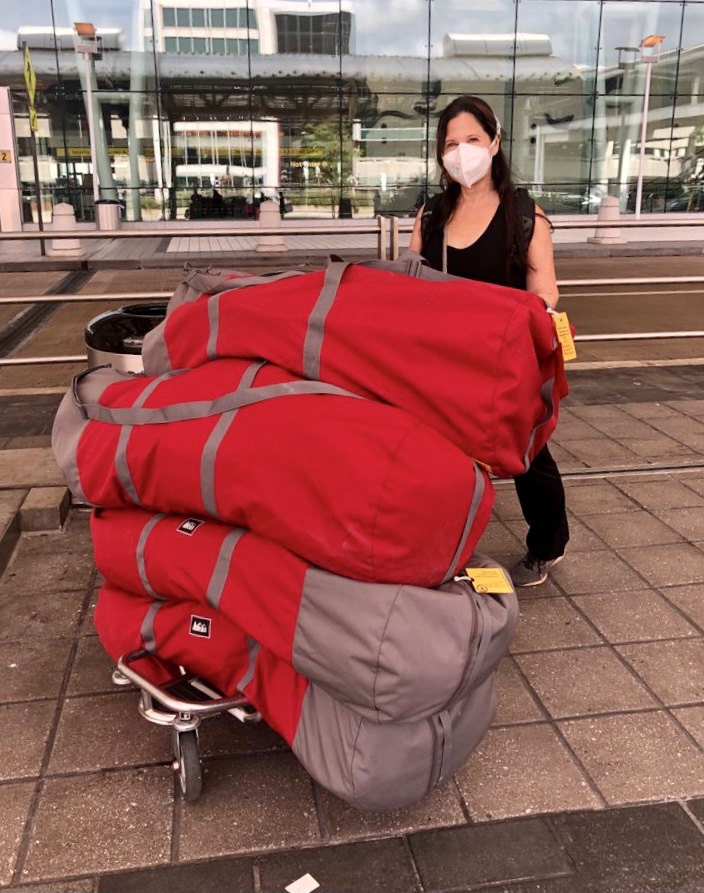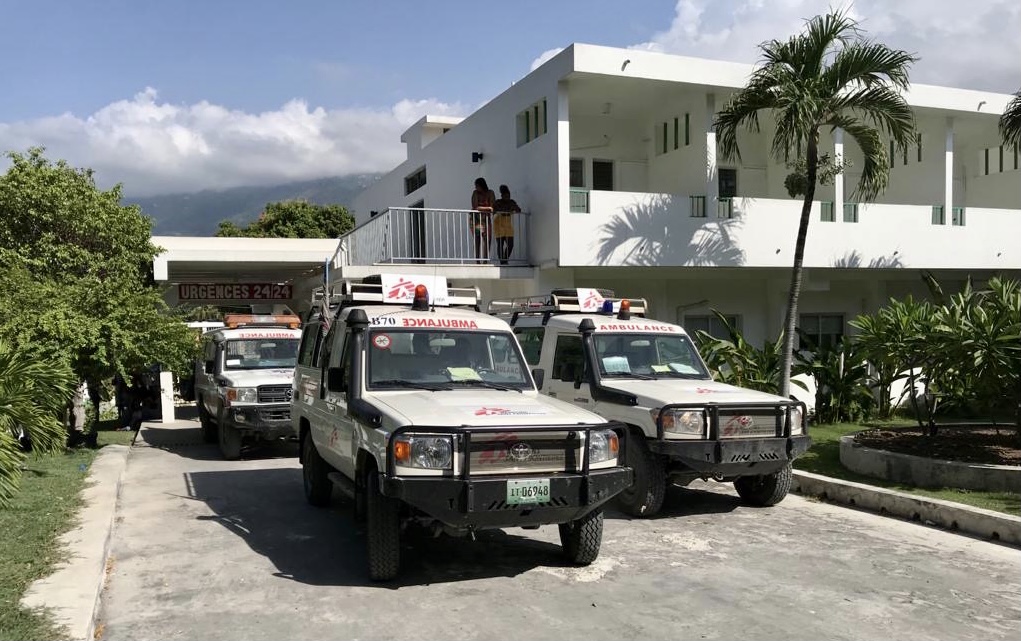
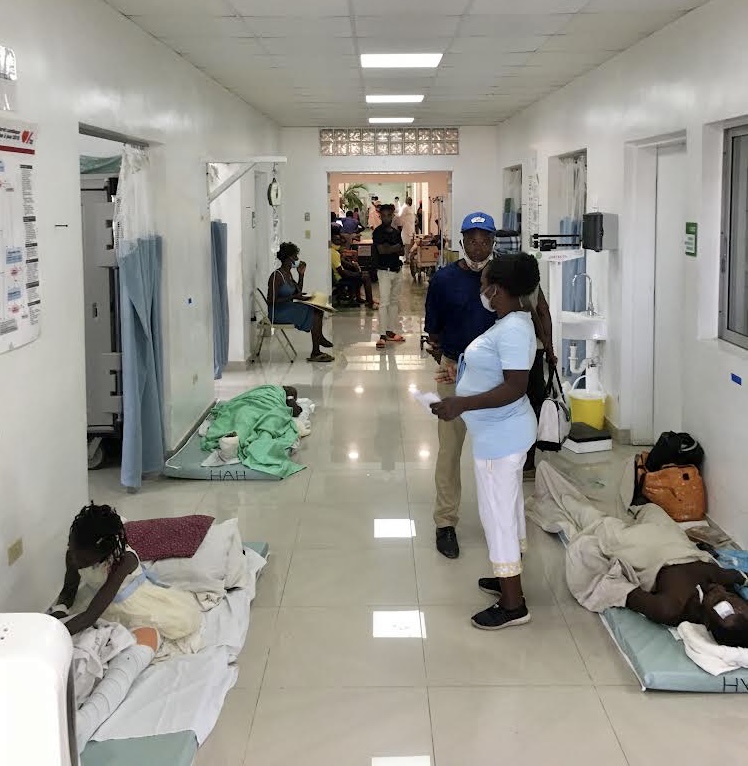
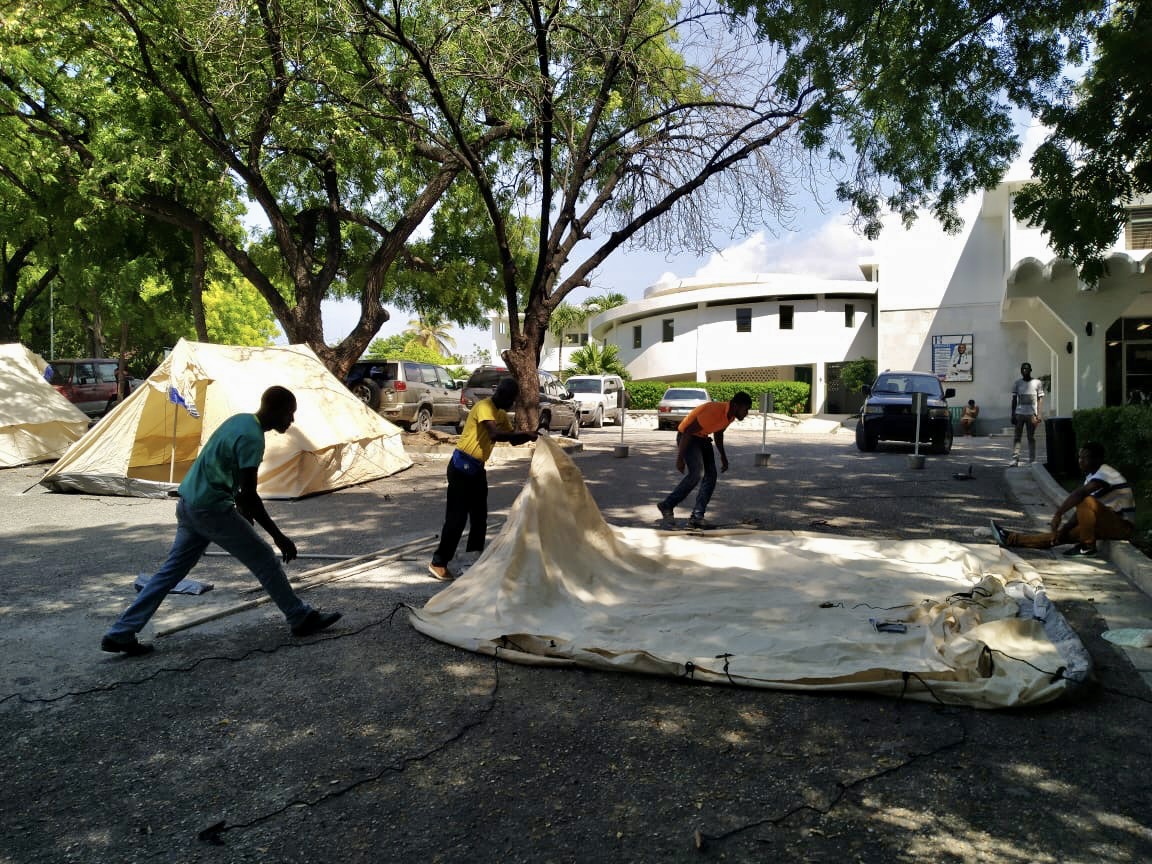
When the 7.2 earthquake hit the southern part of Haiti on 14 August 2021, Haiti Adventist Hospital (HAH) went on alert. The staff quickly mobilized to receive patients from the disaster. Situated 70 miles from the epicenter, within hours earthquake victims poured into the campus. They arrived in brightly colored tap taps (share taxi vehicles) or via ambulances.
Orthopedics has become a flagship service at Haiti Adventist Hospital and patients are referred from all over the island for orthopedic care. HAH is now uniquely able to offer excellent care for people injured in this earthquake. Thanks to donors, there has been significant investment in its infrastructure and staff. It is hard to find a part of the hospital that has not been remodeled since the 2010 quake. HAH staff are experienced in caring for orthopedic surgery patients. The storerooms are stocked with orthopedic implants, tools, and rehab equipment.
In the week following the earthquake, a small expat team of surgeons, nurses, and an anesthesia provider arrived to support the efforts of Dr. Scott Nelson and the HAH staff. Additional support in the form of extra hands and financial resources is being coordinated to continue to augment the local response. These efforts are being supported by your contributions to Amistad International’s Haiti Earthquake fund.
As of Sunday 22 August, HAH has provided care for 165 earthquake victims, including 80 surgeries. The average daily hospital census has increased from 22 to 60 inpatients. With all 34 inpatient beds filled, it has become necessary to spread makeshift beds on floors and in tents set up in the hospital parking lot.
HAH is providing patient care for earthquake victims at no charge. We have kept records of all care that has been provided and will be using donations received to cover the costs of this care. Your donations will supply the necessary financial resources so that HAH can continue to help earthquake victims.
Haiti Adventist Hospital and Amistad International want donors to know that funds will be directly applied to providing patient care for the victims and not to some general fund at the hospital. We are expecting some of this care to be provided over the next several weeks or months as severely injured patients will require additional surgeries and rehabilitation care. Victims are expected to arrive at HAH for several more weeks as rescue operations continue in the area surrounding the epicenter continue. There will also be a need for corrective surgeries in cases of individuals who were not able to receive skilled orthopedic care immediately following the event.
